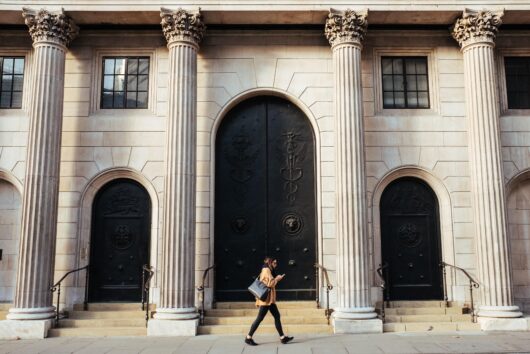Weekly recap: ECB will develop digital currencies ??

Welcome to 2020, ladies and gentlemen! Will it be crypto’s year? Of course it will – every year is crypto’s year. Now, let us present to your eyeballs all of the crypto news that has been fit to print over the past week. It’s been a rollercoaster of emotions – buckle up.
ECB to develop digital currencies but won’t discourage private initiatives
There was a great deal of chatter around CBDCs (Central Bank Digital Currencies) in 2019, particularly from the EU. And it seems like this will continue to be a theme in 2020, with European Central Bank (ECB) President Christine Lagard this week reiterating that the ECB wants to play an active role in cryptocurrencies.
In an interview this week with French business magazine, Challenges, Lagarde said the bank would continue “to assess the costs and benefits of issuing a central bank digital currency that would ensure that the general public remains able to use central bank money even if the use of physical cash eventually declines.”
However, Lagarde also added that this does not mean the bank will block cryptocurrencies created by private organisations. “The prospect of central bank initiatives should neither discourage nor crowd out private market-led solutions for fast and efficient retail payments in the euro area,” she said.
Ethereum dev indicted for delivering cryptocurrency talk in North Korea
Virgil Griffith, the Ethereum developer arrested after allegedly traveling to North Korea to teach how to use cryptocurrency for money laundering, has been indicted.
Court documents revealed that Griffith is being charged with one count of conspiracy to violate the International Emergency Economic Powers Act.
US Attorney Geoffrey S. Berman stated: “As alleged, Virgil Griffith provided highly technical information to North Korea, knowing that this information could be used to help North Korea launder money and evade sanctions. In allegedly doing so, Griffith jeopardised the sanctions that both Congress and the president have enacted to place maximum pressure on North Korea’s dangerous regime.”
Griffith was first arrested in November on federal charges of illegally traveling to North Korea in April and presenting at the “Pyongyang Blockchain and Cryptocurrency Conference,” despite the US Department of State denying his permission to travel to the country.
Telegram says TON Wallet won’t integrate with its messaging app at launch
Telegram and three of its employees, including CEO Pavel Durov, may be awaiting a call from the US Securities and Exchange Commission (SEC), but they’re still going with the product announcements.
In a statement dated 6 January, the company announced that the TON Wallet, an application built on the network that can store TON’s native Gram tokens, will be a stand-alone service independent from Telegram Messenger.
“At the time of the anticipated launch of the TON Blockchain, Telegram’s TON Wallet application is expected to be made available solely on a stand-alone basis and will not be integrated with the Telegram Messenger service. In this regard, the TON Wallet is expected to compete with any other wallet applications designed and offered by third parties. Telegram may integrate the TON Wallet application with the Telegram Messenger service in the future to the extent permitted under applicable laws and governmental authorities.”
The move will confuse some, with integration to the popular messaging app surely a major selling point. There has been speculation that the decision was made to separate the apps in order to reinforce Telegram’s claims that it doesn’t have control over its blockchain. We will have to wait and see if the SEC buy it.
Baidu launches public beta for its ‘Xuperchain’ blockchain project
Chinese Internent behemoth, Baidu has launched the public beta for its “Xuperchain” open-network blockchain.
The service will allow small and medium-size businesses and developers to cheaply launch so-called decentralised applications (dApps). Users can pay as little as 1 Chinese yuan, or approximately $0.14, to deploy a blockchain application, according to the company’s website.
Xuperchain will be compliant with Chinese blockchain standards. In October, China’s President Xi called on the country to “seize the opportunity” to become the world’s leader in blockchain’s development. Could this be the start of a blockchain gold rush in the country?
The State Of Illinois Legalises Blockchain-Based Smart Contracts
Illinois has become the latest state to recognise smart contracts and other blockchain-based records as legal instruments. The state’s “Blockchain Technology Act,” sponsored by Rep. Keith Wheeler (R), means that smart contracts are now admissible as evidence in court, recognised as a viable alternative to paper-based records, and statutorily exempt from local taxation.
“A smart contract, record or signature may not be denied legal effect or enforceability solely because a blockchain was used to create, store or verify the smart contract, record or signature,” the law reads.
Keep reading…
Blockchain is most in-demand tech skill, says LinkedIn
What crypto Twitter had to say in 2019
Top crypto trends to watch out for in 2020
Bitcoin futures are growing in popularity, but what are they?
 Discover
Discover Help Centre
Help Centre Status
Status Company
Company Careers
Careers Press
Press


